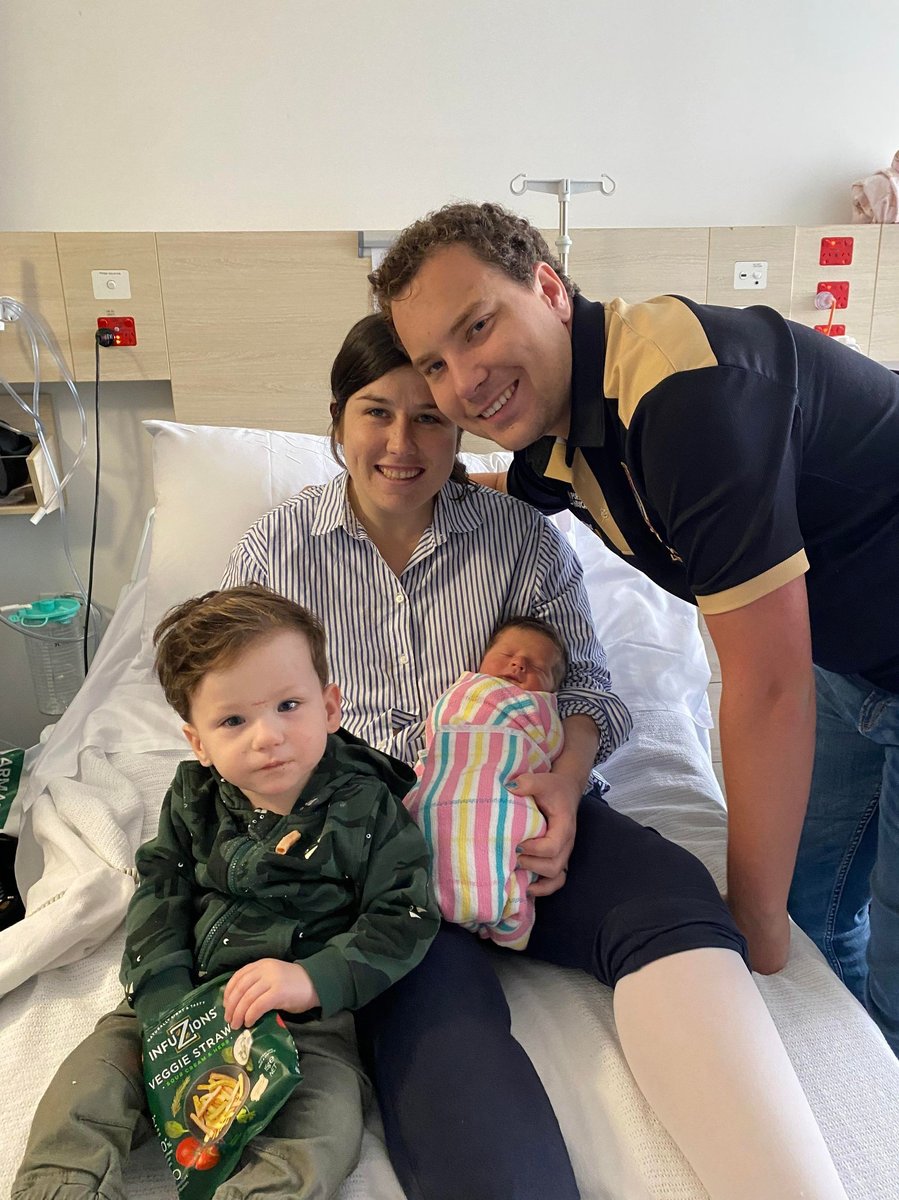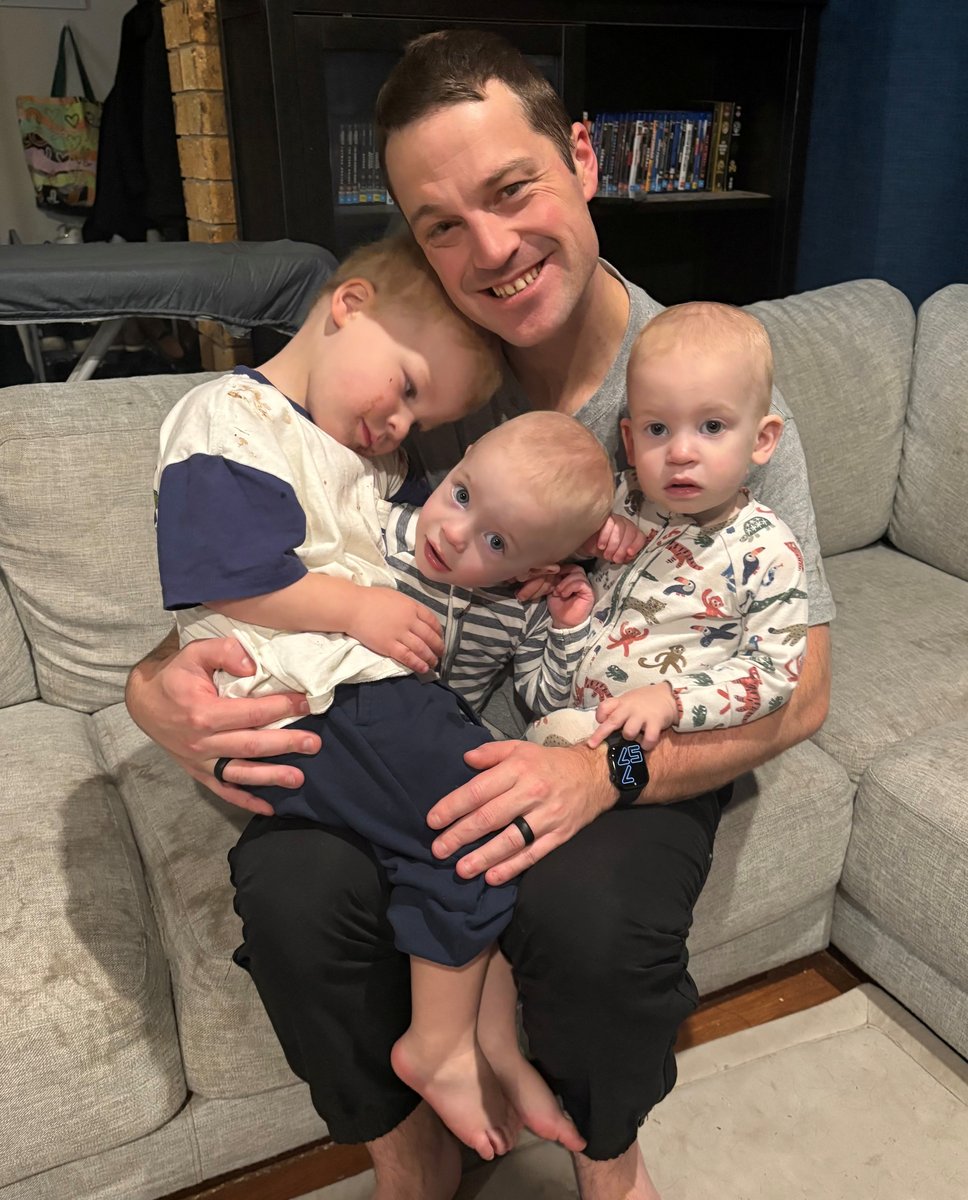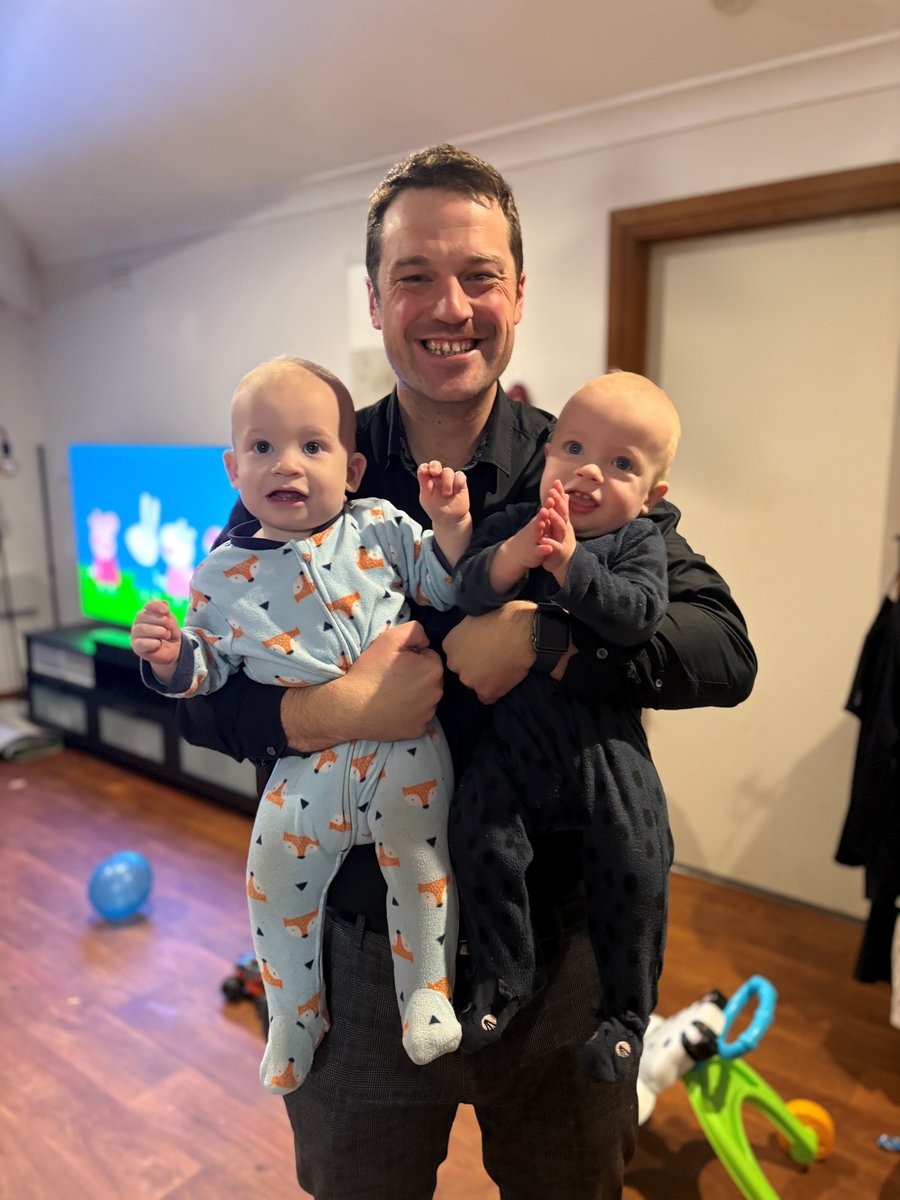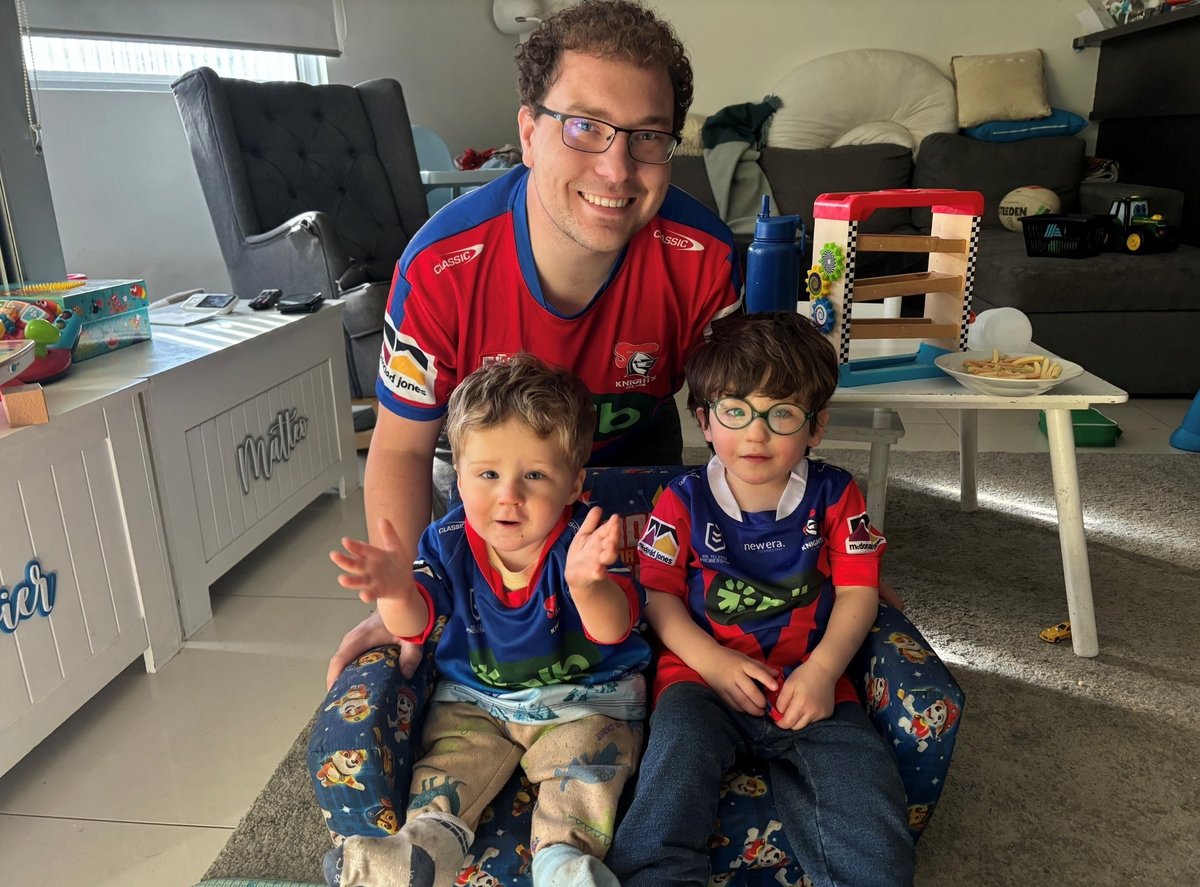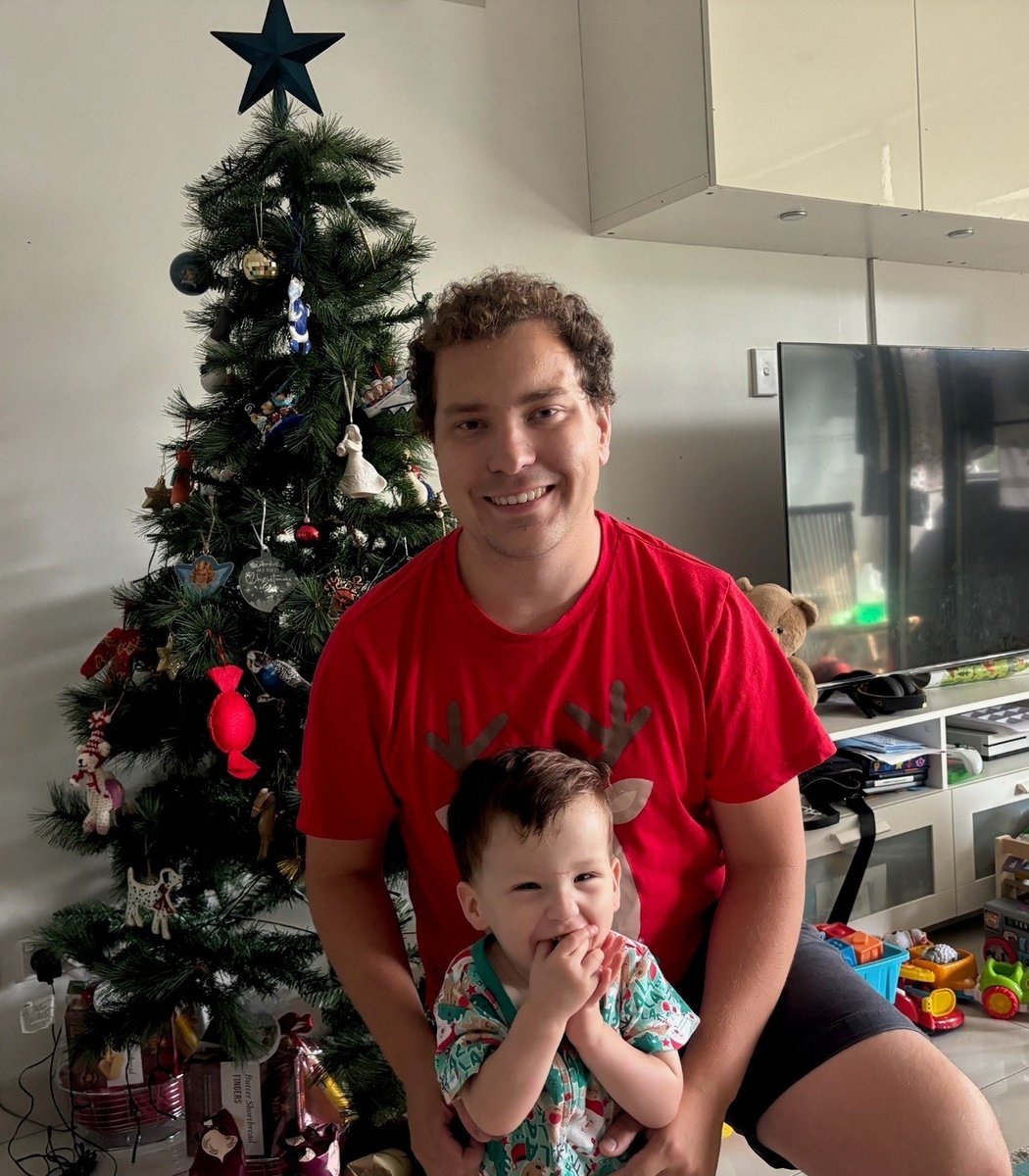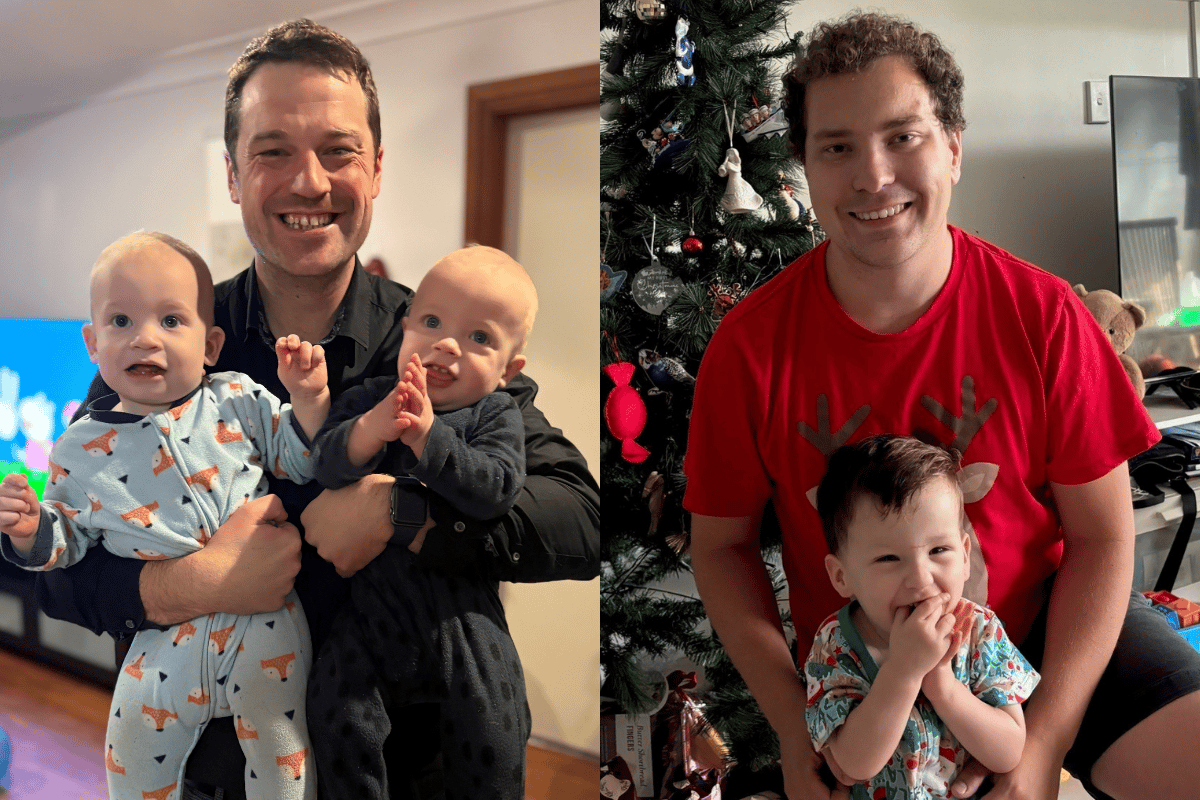
Trent and his wife Stella did not have an easy road to parenthood. The couple tried for nearly a year to fall pregnant, before his wife was diagnosed with Polycystic Ovary Syndrome (PCOS). What followed were months of hormonal treatments, injected through the stomach.
"Even on our wedding night, my wife couldn't drink, she couldn't enjoy herself as much, just because we were trying so hard to have our child," Trent told Mamamia.
Finally, on the very last round of injections, they fell pregnant.
"We were thrilled, very ecstatic," he said.
The pregnancy was going smoothly, but when they reached the 30-week mark, everything changed.
Watch: Jess Eva talks about her postnatal depression on 'I'm A Celebrity... Get Me Out Of Here!'. Post continues after video.
"I got home from work one day and my wife said, 'Look, I don't think the baby's moving around as much. I just want to go get him checked out.' I said 'No worries, we'll go up to the hospital'. She stayed in overnight."
The next morning, the obstetrician told the parents-to-be that it was time to prepare themselves to welcome their baby.


